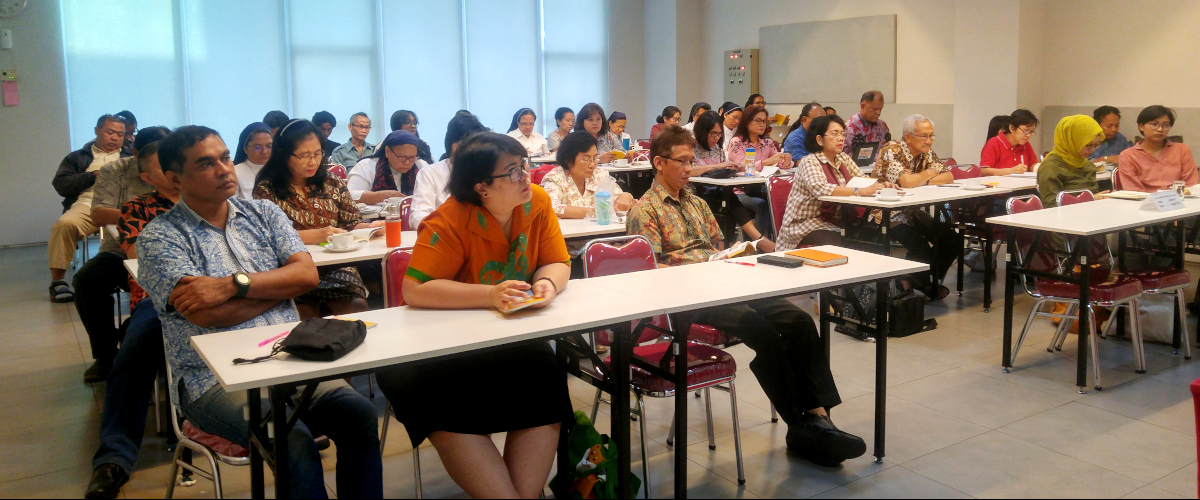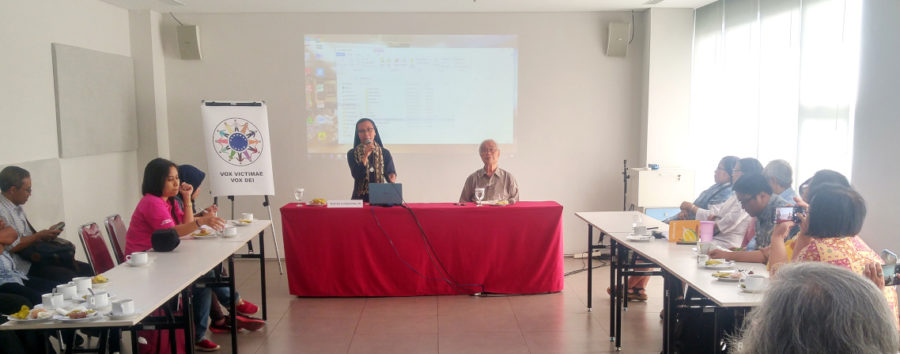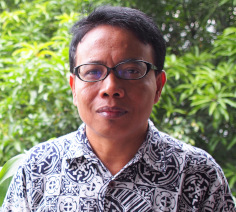 The Migrants and Refugees Section of the Vatican’s Dicastery for Promoting Integral Human Development published a 36-page document on “Pastoral Orientations on Human Trafficking” in January. The aim was to provide guidance in understanding, preventing and eradicating the trafficking of persons and to protect and support them in their recovery. The document is the result of extensive consultations with church leaders, scholars, experienced practitioners and partner organisations working in the field.
The Migrants and Refugees Section of the Vatican’s Dicastery for Promoting Integral Human Development published a 36-page document on “Pastoral Orientations on Human Trafficking” in January. The aim was to provide guidance in understanding, preventing and eradicating the trafficking of persons and to protect and support them in their recovery. The document is the result of extensive consultations with church leaders, scholars, experienced practitioners and partner organisations working in the field.
The Catholic Church in Indonesia has recently published the document in Indonesian language to enable Indonesian Catholics and the Indonesian population in general to better understand the Catholic Church’s commitment on human trafficking.
“What the Pope says in the document is also the concern of the Indonesian people”, said Fr Ignatius Ismartono SJ at the launch of the printed translation in Jakarta on June 18. Fr Ismartono translated the English version of the document to Bahasa. He is the Director of “Sahabat Insan” (Friends of Humanity), a charity, faith- and volunteer-based organisation that cares for Indonesian migrant workers who had been victims of human trafficking.
The launching was participated in by more than 60 representatives of migrant organisations and advocates inside and outside the Catholic church. One of them was Ursuline Sister Irene Handayani of the Jakarta Archdiocese’s Caring for Migrant Workers Network. She hopes that the translation will help her better raise awareness about the issue. “I have told many people what human trafficking is all about, but many still don’t understand it. With this Indonesian translation in hand, I hope more people will be aware of the dangers,” she shared.

Fr Ismartono has been working all out in promoting the dangers of human trafficking in Indonesia. On July 5, he invited Sister Laurentina of the Divine Providence from Nusa Tenggara Timur to share her experience of receiving corpses of Indonesian migrant workers repatriated to their hometowns. Because of her involvement in receiving and taking the bodies from the cargo terminal to their families, she was dubbed “Sister Cargo”.
“The main targets of human trafficking are vulnerable people. Those who are economically poor, and who are easily deceived”, Sister Laurentina said in an interview with the Associated Press.
According to 2014 figures of the Asia Pacific Migration Network, around 61,000 migrant workers are still missing worldwide. In Indonesia alone, around 2,600 cases were reported in the same period, mostly involving Indonesians recruited illegally as migrant workers.
In Asia and the Pacific, an estimated 24.9 million men, women and children were living in modern slavery on any given day in 2016 according to the Global Slavery Index 2018. The region had the highest number of victims across all forms of modern slavery, accounting for 73 per cent of victims of forced sexual exploitation, 68 per cent of those forced to work by state authorities, 64 per cent of those in forced labour exploitation and 42 per cent of all those in forced marriages. The rate of forced marriage was two victims per 1,000 people.
In Indonesia, the estimated number of Indonesians living in modern slavery on any given day in 2016 was 1,220,000 persons or 4.7 per 1,000 population. The report does not mention where they were trafficked and the victims are often not easily identified. So the numbers could be higher than reported.
Given the prevalence of human trafficking in our region, the “Pastoral Orientations on Human Trafficking” provides a practical and clear orientation on how to deal with the issue of human trafficking. The document describes how in industries such as agriculture, fishing, construction, plantation and mining, human trafficking has proliferated through the collaboration of numerous and various perpetrators making it a phenomenon more complex than most people think. It is important for us as advocates against human trafficking to have a comprehensive understanding of the issue. Doing so, we can hopefully address appropriately the issue and effectively and efficiently provide support and assistance to the victims.
 Fr Adrianus Suyadi SJ is the Secretary for Social Ministries of the Jesuit Conference of Asia Pacific. He co-wrote this article with Fr Ignatius Ismartono SJ.
Fr Adrianus Suyadi SJ is the Secretary for Social Ministries of the Jesuit Conference of Asia Pacific. He co-wrote this article with Fr Ignatius Ismartono SJ.

